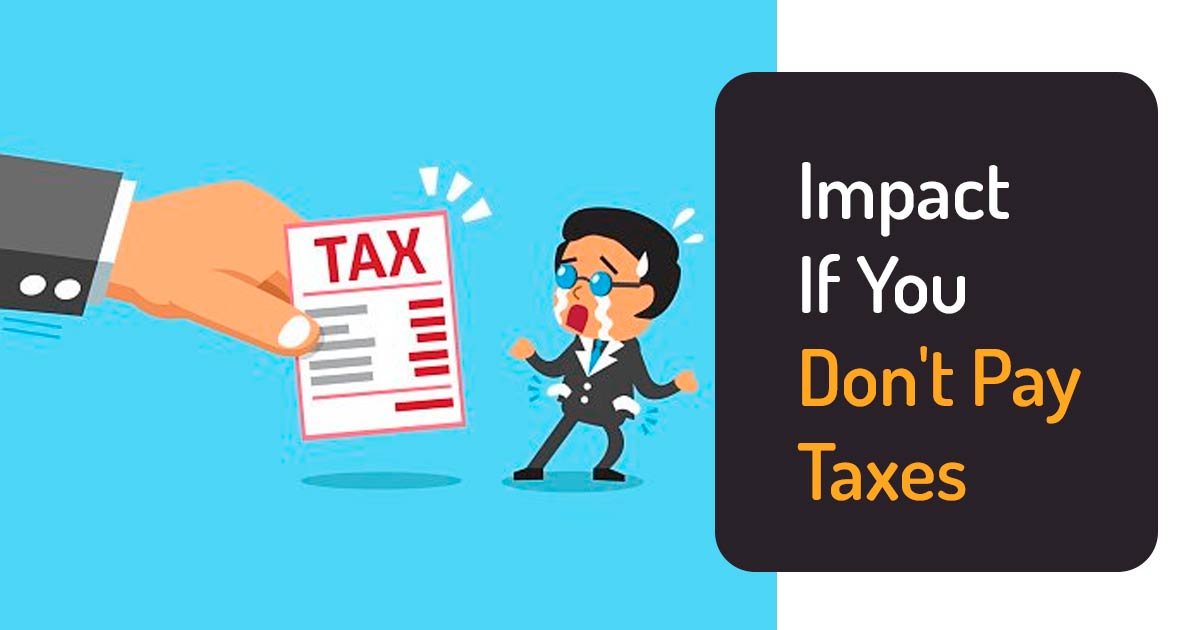
Impact of No Taxes in India
The system of tax is so difficult in India. As a CA student, it would diminish your taxation syllabus which is difficult for many students to crack. As an assessee in India, they would surely find it cool as they do not need to give the time to all those legal documents.
If our country does not have any taxes then what would be the consequences let’s see. The major source of income is the tax in every country. Also failing the pay tax which is mandatory to file in the country is then subjected to the penalty by law. The definition of the tax is the transfer of the wealth of the households or businesses to the government.
The Discussion is Much More Arguable
Many countries do not have tax rules and there is no need to furnish the tax at all. But these countries are majorly located in the areas where the land produces oil such as the Gulf region. The UNITED ARAB EMIRATES is one of them as the country is rich in natural resources such as oil and its free trade. Other than this Bahrain, Brunei, Bermuda, Monaco, Oman, Maldives, and Bahamas are also included countries where people do not pay tax. As the majority of the countries are oil-producing thus 90% of the revenue is occurring via the oil and gas industry.
Indeed Bahamas and Maldives are the countries in which much more revenue is drawn from the tourists thus their government does not urge taxes from the residents.
In India tax is the major source of income. While from the tax nontax revenue is the recurring income that the government earns from the sources excluding the taxes. The majority of the sources from this are the interest, dividends, fees, penalties, and profits received from public sector companies. The direct tax covers 51.3% of total revenues in 2016-2017. After GST began in July 2017, now indirect taxes cover almost 28.46% of total revenue.
Below are the amendments that would be seen in our economy if our government decides to end the income tax laws.
- The same would surge the money circulation in the economy through a bigger percentage. The more the taxes the more cautious will be the customers towards their expenditures with no tax people seem to spend more than before leading to a rise in the money supply in the economy.
- The developing countries such as India, where the tax is one of the essential income sources if the tax gets waived then the situation to run the country by the government would be difficult.
- People or organizations get the advantage of saving the tax and there will be no legal compliance needed to be followed also no additional charges needed to be paid, or no extra paperwork.
- Indeed the power of lending of the bank will also increase as the Black money upon which the tax is not mentioned would now be used freely would surge the deposits in banks that shall rectify their lending power.
- Because of some taxation rules, foreign investors would invest in India. Companies such as Apple, Nike, and Goldman Sachs exist using their resources in the country that are free from taxes.
The middle class is still seeing the paying of the tax as a compliance load. Giving some part from the income looks not good however the same poses some benefits.
The amount furnished as an income tax is used for the welfare of the society, building or construction of the public infrastructure, health, education, housing, scientific research etc.
Demerits of Zero Tax
Naturally, income tax is progressive in nature while indirect tax is regressive. Rich people furnish the tax and this money is utilised to provide the advantage towards society, as well as it raises the weaker section of the society who do not have much potential to give the taxes.
Indirect tax is regressive in nature “YOU BUY, YOU PAY”. if the government ends the direct taxes then the common people would then see a rise in the costs as the government would attempt to create its revenue from the indirect taxes as a result this will levy a higher tax on consumer goods. The same would pose a negative effect on the consumers.
The income gap would indeed get raised from this. The rich people would grow more and get rich while the poor and the middle class suffer from furnishing indirect taxes. The rich would get free from paying direct taxes.
The mentioned situation relies on the grounds of the hypothetical situation. The countries like India whose population is much more along that the income gap between rich and poor is higher it is harder to abolish the taxes.









